The Power of Backlinks: Driving Targeted Traffic to Your Website A Beginner’s Guide to Backlinks and Off-Page SEO
I. Introduction
In today’s digital age, having a website is not enough to attract potential customers and drive business growth. With millions of websites competing for attention online, it’s important to ensure that your website stands out and ranks high in search engine results. This is where backlinks and off-page SEO come into play.
Backlinks are simply links from other websites that direct users to your website. While the concept may seem simple, the value of backlinks for search engine optimization (SEO) cannot be overstated. In fact, backlinks are one of the most important ranking factors used by search engines to evaluate the authority and relevance of a website. The more high-quality backlinks your website has, the more likely it is to rank higher in search engine results pages (SERPs) and attract targeted traffic.
Off-page SEO, on the other hand, refers to all the strategies and techniques used outside of your website to improve its visibility and ranking. This includes acquiring high-quality backlinks, building a strong social media presence, managing online reputation, and implementing local SEO tactics.
In this beginner’s guide, we will explore the power of backlinks and off-page SEO in driving targeted traffic to your website. We will start by defining what backlinks are and why they are important for SEO. We will then discuss various techniques and strategies for acquiring high-quality backlinks, as well as tips for avoiding low-quality or spammy backlinks.
Additionally, we will explore the different metrics used to evaluate the value of backlinks, such as domain authority, page authority, relevance, and anchor text. We will also provide tips for measuring and analyzing your backlinks using various online tools.
Finally, we will discuss best practices for implementing an effective off-page SEO strategy, including social media engagement, directory listings, local SEO, brand mentions, and online reputation management.
By the end of this guide, you will have a solid understanding of the power of backlinks and off-page SEO in attracting targeted traffic to your website and improving its visibility and ranking in search engine results pages. So let’s get started!
II. What are Backlinks?
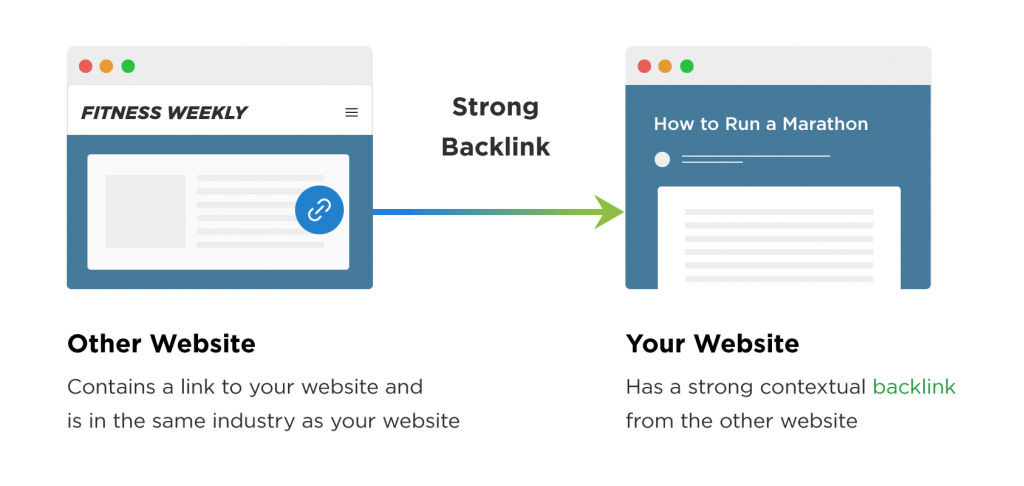
Backlinks are links from other websites that direct users to your website. They are also known as inbound links or incoming links. Backlinks are an essential aspect of search engine optimization (SEO) and play a vital role in determining a website’s authority and credibility.
When a website has many high-quality backlinks, search engines like Google consider it to be more authoritative and relevant, which can result in higher rankings in search engine results pages (SERPs). Therefore, acquiring high-quality backlinks is an essential aspect of SEO that can help you attract more targeted traffic to your website.
Backlinks come in different types and forms, including natural backlinks, manual backlinks, and self-created backlinks. Natural backlinks are those that are created organically when other websites link to your website because they find your content useful, interesting, or relevant. Manual backlinks, on the other hand, are those that you acquire through intentional link building techniques. Self-created backlinks are links that you create yourself, such as in online forums, blog comments, or social media profiles.
Backlinks can also be categorized based on their quality and relevance. High-quality backlinks come from authoritative and trustworthy websites with high domain authority, page authority, and relevance to your website’s content. Low-quality backlinks, on the other hand, come from spammy or low-quality websites and can hurt your website’s ranking and credibility.
Backlinks are not created equal, and some types of backlinks are more valuable than others. For instance, contextual backlinks, which are links embedded within the content of a website, are considered more valuable than footer or sidebar backlinks, which are usually less relevant and less visible.
In summary, backlinks are essential for SEO and play a significant role in determining a website’s authority and relevance. High-quality, contextual backlinks from authoritative and relevant websites can help improve your website’s ranking and visibility in search engine results pages, while low-quality or spammy backlinks can hurt your website’s credibility and ranking.
III. How to Acquire Backlinks
Acquiring high-quality backlinks is an essential aspect of search engine optimization (SEO) and can help improve your website’s authority, credibility, and visibility in search engine results pages (SERPs). Here are some effective strategies for acquiring backlinks:
Guest Blogging:
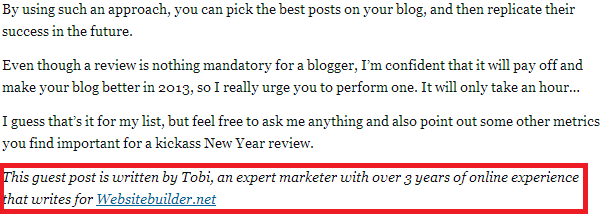
One of the most popular ways to acquire backlinks is through guest blogging. This involves creating high-quality content and submitting it to other websites or blogs in your industry. In return, you can usually include a link back to your website in your author bio or within the content.
Broken Link Building:
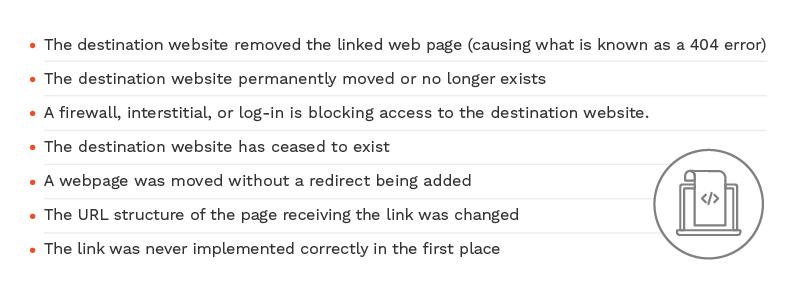
Broken link building involves finding broken links on other websites and offering to replace them with a link to your website’s content. This technique requires some research and outreach but can be a highly effective way to acquire high-quality backlinks.
Infographic Outreach:

Infographics are a great way to attract backlinks because they are visually appealing and informative. You can create an infographic related to your industry or niche and reach out to other websites or bloggers to share it on their websites, in exchange for a link back to your website.
Social Media:

Social media platforms like Facebook, Twitter, and LinkedIn can also be used to acquire backlinks. By sharing your content on social media, you can attract more attention and increase the chances of other websites linking to your content.
Content Promotion:
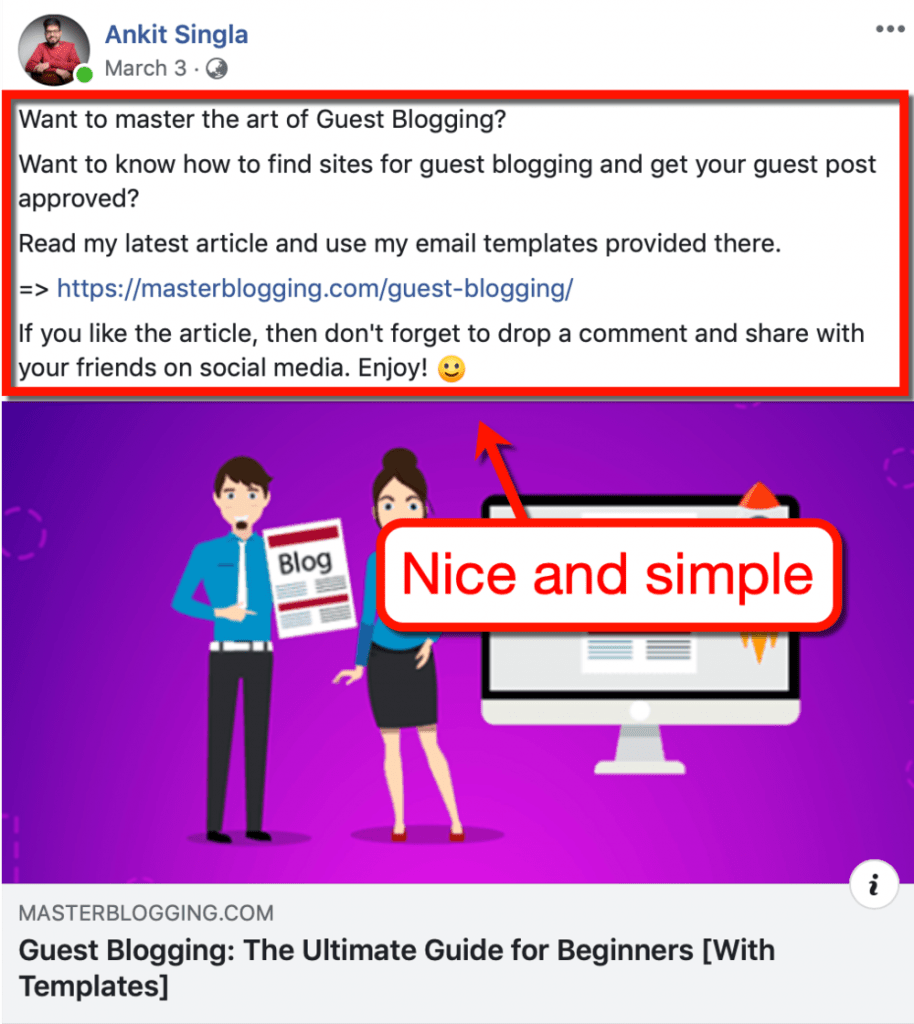
Promoting your content on different channels, such as email outreach, forums, and online communities, can also help acquire backlinks. By reaching out to influencers in your industry and encouraging them to share your content, you can attract more traffic and backlinks.
When acquiring backlinks, it’s essential to focus on quality over quantity. Low-quality backlinks from spammy or irrelevant websites can hurt your website’s credibility and ranking. Therefore, it’s important to prioritize acquiring high-quality, contextual backlinks from authoritative and relevant websites.
In conclusion, acquiring high-quality backlinks is essential for SEO and can help improve your website’s authority, credibility, and visibility in search engine results pages. By using a combination of different strategies, such as guest blogging, broken link building, infographic outreach, social media, and content promotion, you can attract more targeted traffic to your website and improve its ranking and visibility.
IV. Measuring the Value of Backlinks
Measuring the value of backlinks is essential for understanding the impact of your SEO efforts and optimizing your link building strategy. Here are some metrics to consider when measuring the value of backlinks:
1. Domain Authority (DA):
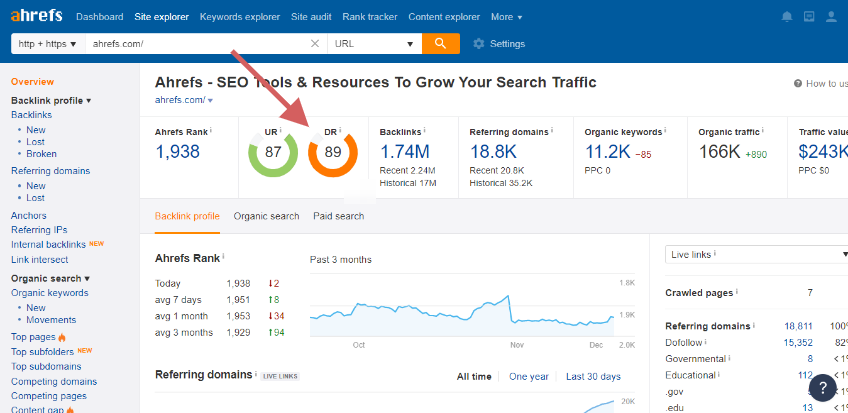
DA is a metric that predicts how well a website will rank on search engine results pages. Websites with high DA are considered more authoritative and are more likely to pass on link equity to other websites through backlinks.
2. Page Authority (PA):
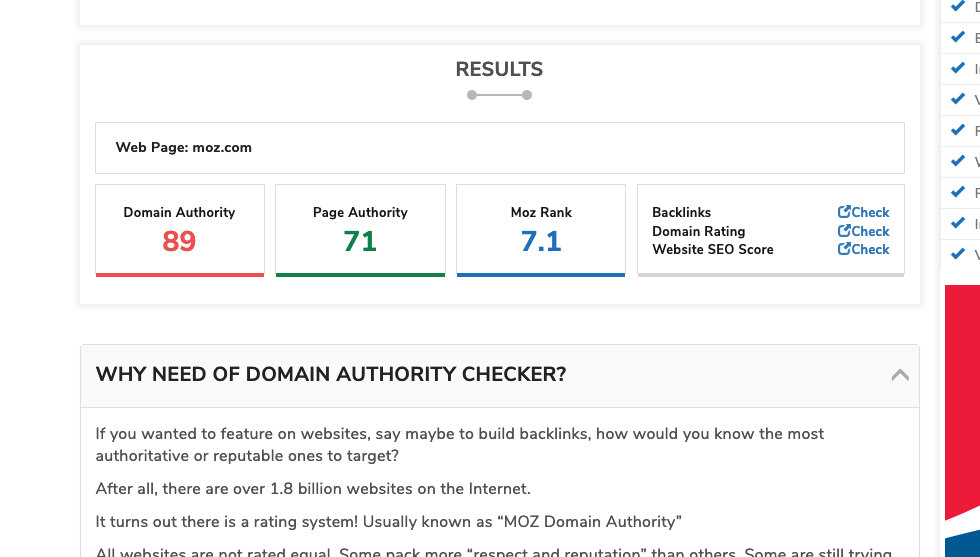
PA is a metric that predicts how well a specific page on a website will rank on search engine results pages. Pages with high PA are more likely to pass on link equity to other websites through backlinks.
3. Trust Flow (TF):
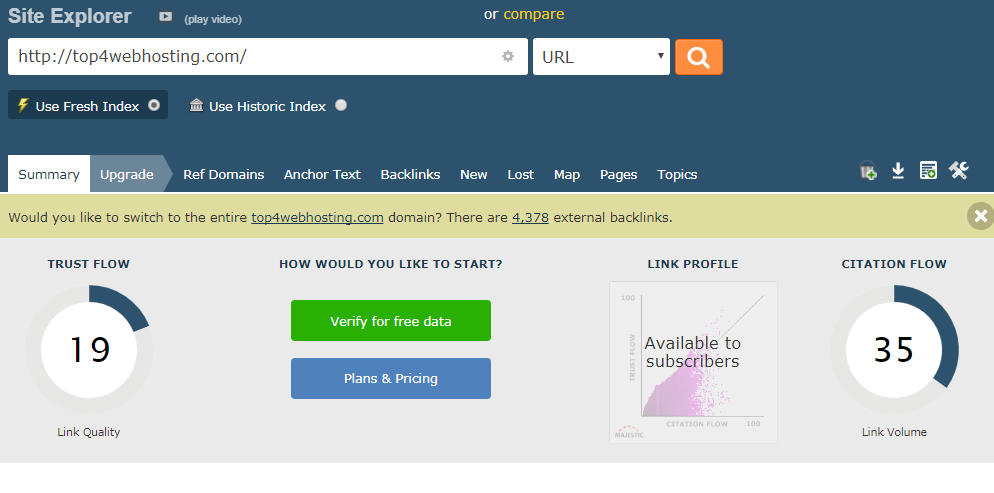
TF is a metric that measures how trustworthy a website is based on the quality and relevance of its backlinks. Websites with high TF are more likely to pass on link equity to other websites through backlinks.
4. Citation Flow (CF):
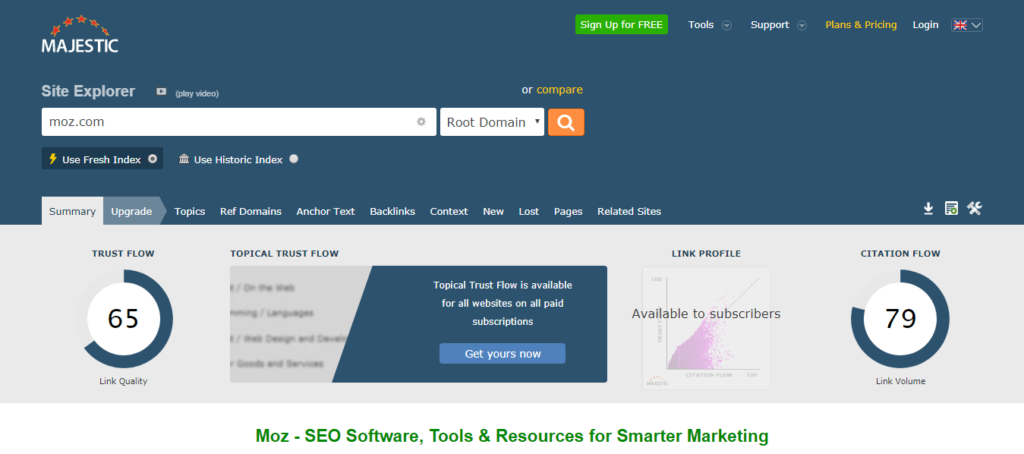
CF is a metric that measures how influential a website is based on the number of backlinks it has. Websites with high CF are more likely to pass on link equity to other websites through backlinks.
5. Anchor Text:

Anchor text is the text used in a hyperlink that links to another website. The relevance and quality of the anchor text can influence the value of the backlink.
When measuring the value of backlinks, it’s essential to focus on quality over quantity. High-quality backlinks from authoritative and relevant websites can significantly improve your website’s ranking and visibility in search engine results pages, while low-quality or spammy backlinks can hurt your website’s credibility and ranking.
It’s also important to track your backlink profile over time to identify any changes or trends that may affect your SEO efforts. By regularly monitoring your backlinks using tools like Google Search Console or Ahrefs, you can identify any toxic or spammy backlinks that may be harming your website’s ranking and take action to remove or disavow them.
In conclusion, measuring the value of backlinks is essential for understanding the impact of your SEO efforts and optimizing your link building strategy. By considering metrics like DA, PA, TF, CF, and anchor text, and focusing on acquiring high-quality, contextual backlinks from authoritative and relevant websites, you can improve your website’s ranking and visibility in search engine results pages and attract more targeted traffic to your website.
V. Off-Page SEO Best Practices
Off-page SEO refers to all the activities that can be performed outside of your website to improve your search engine ranking and visibility. Here are some best practices for off-page SEO:
- Link Building: As discussed earlier, link building is a crucial aspect of off-page SEO. The quality and relevance of the backlinks you acquire can significantly impact your search engine ranking and visibility.
- Social Media Marketing: Social media platforms like Facebook, Twitter, and LinkedIn can be used to promote your content and attract more traffic to your website. By regularly sharing your content on social media, engaging with your audience, and building a following, you can improve your website’s visibility and attract more backlinks.
- Influencer Marketing: Influencer marketing involves collaborating with influencers in your industry to promote your content and attract more traffic to your website. By partnering with influencers who have a significant following and influence in your industry, you can increase your website’s visibility and attract more backlinks.
- Content Marketing: Creating high-quality, informative, and engaging content is an essential aspect of off-page SEO. By creating content that people want to read and share, you can attract more traffic to your website and attract more backlinks.
- Local SEO: If you have a local business, optimizing your website for local search engine results can be a highly effective off-page SEO strategy. This involves creating local listings on directories, optimizing your website for local keywords, and building local backlinks.
In conclusion, off-page SEO involves all the activities that can be performed outside of your website to improve your search engine ranking and visibility. By focusing on strategies like link building, social media marketing, influencer marketing, content marketing, and local SEO, you can attract more targeted traffic to your website and improve its ranking and visibility in search engine results pages. It’s important to remember that off-page SEO is an ongoing process that requires consistent effort and attention to achieve long-term success.
VI. Conclusion
In conclusion, backlinks and off-page SEO are essential components of any successful SEO strategy. Backlinks provide a vote of confidence from other websites, signaling to search engines that your website is authoritative and relevant. Off-page SEO activities can help improve your website’s visibility and attract more targeted traffic to your website.
However, it’s important to note that link building and off-page SEO require consistent effort and attention. Acquiring high-quality backlinks from authoritative and relevant websites can take time and effort. It’s essential to focus on building long-term relationships with other websites and providing value to your audience through high-quality content.
Additionally, it’s important to avoid any spammy or manipulative tactics that can harm your website’s ranking and credibility. Google’s algorithms are designed to penalize websites that engage in unethical or manipulative practices, such as buying backlinks or participating in link schemes.
Ultimately, the key to success with backlinks and off-page SEO is to focus on providing value to your audience and building relationships with other websites in your industry. By consistently creating high-quality content, engaging with your audience on social media, and building long-term relationships with other websites, you can attract more targeted traffic to your website and improve its ranking and visibility in search engine results pages.
In conclusion, backlinks and off-page SEO are powerful tools for driving targeted traffic to your website, but they require consistent effort and attention. By focusing on high-quality content, building long-term relationships with other websites, and avoiding spammy or manipulative tactics, you can improve your website’s ranking and visibility in search engine results pages and attract more targeted traffic to your website.










Write a Comment